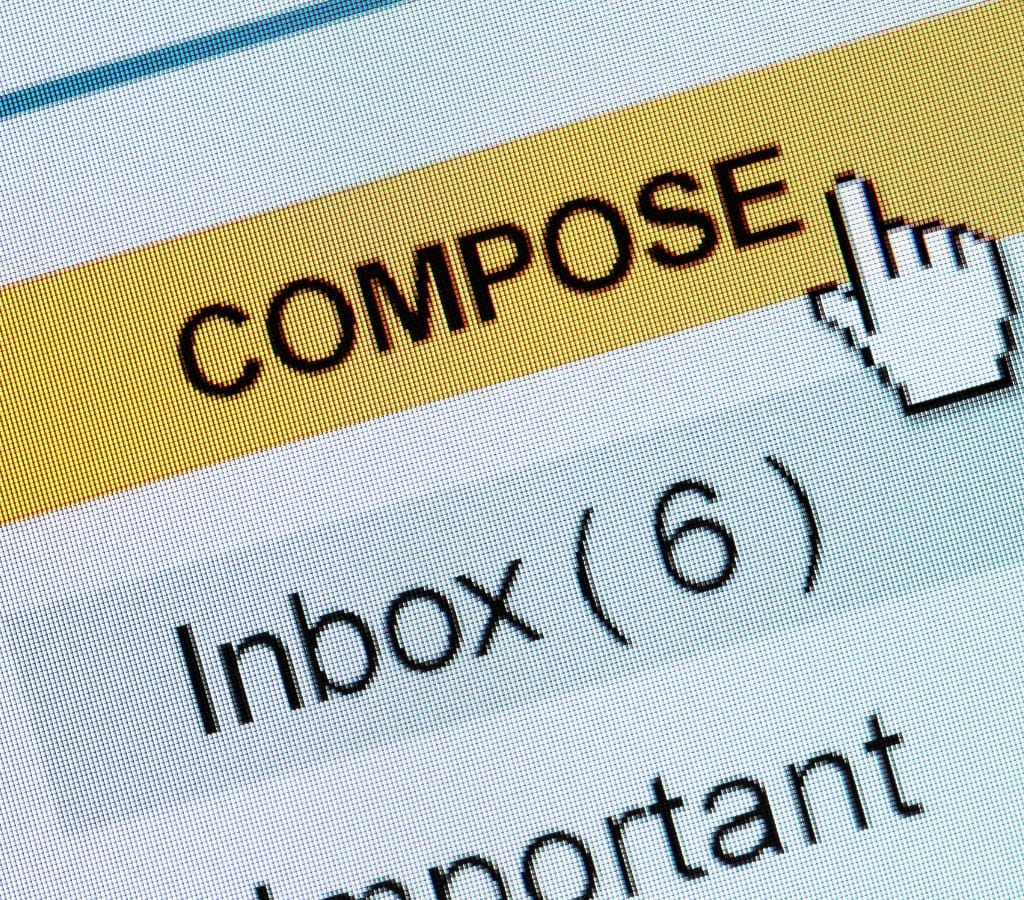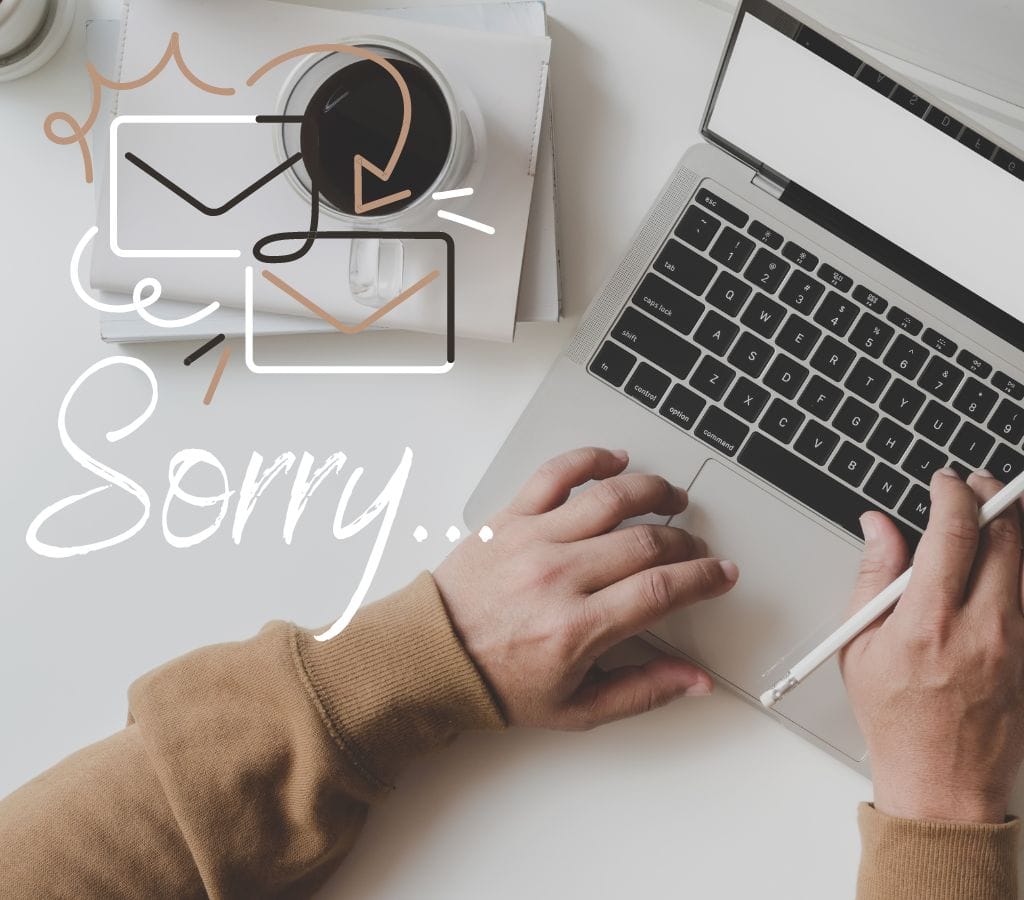At work, mistakes can happen to anyone. Whether you've missed a critical deadline, given incorrect information, or simply made a thoughtless comment, the key to maintaining a positive professional relationship is to apologize sincerely and promptly.
Writing an apology email to your boss can be challenging, but with the right approach, it can help you regain trust and move forward constructively.
In this post, we will delve into how to write an apology email to your boss.
When to Apologize to Your Boss
Before diving into how to apologize professionally in an email, it's essential to understand when such an email is necessary. Here are some scenarios where an apology email to your boss is warranted:
- Major Slip-Ups: If your mistake significantly impacted the project, team, or company.
- Miscommunication: When you unintentionally provide wrong or unclear information.
- Unintended Offense: If your actions or words were rude or hurtful.
- Public Blunders: When you goofed up in a way that could affect your boss's or company's reputation.
- Late Response: When you've taken a long time to get back to them about something important.

Tips for Writing Apology Email to Your Boss
Apologizing to your boss requires a thoughtful and professional approach. Here are some key best practices to keep in mind:
1. Be Sincere
Sincere apologies are the best kind. If you try to fake it, your boss will probably be able to tell. Make sure that your apology is sincere and shows that you're sorry for what you did.
2. Take Responsibility
Own up to your part in the mistake and take full responsibility. Don't make excuses or put the blame on other people. This shows that you are responsible and ready to learn from your mistakes.
3. Lead with Empathy
Show that you know how your mistake affected your team and your boss. This shows that you care and helps build trust again.
4. Communicate Next Steps
Write down a clear plan for how to fix the problem. This could mean a new date, extra steps to stop mistakes like this from happening again, or anything else that needs to be done.

Elements of an Effective Apology Email
- Positive Start: Use a positive and professional tone to start your email. This sets a good mood for the rest of the message.
- Sincerity: Make sure your apology is clear and comes from the heart.
- Accountable: Own up to your mistake and take full responsibility.
- Empathy: Show that you understand how your actions affect your boss and the team.
- Action Plan: Make a list of things you can do to stop making the same mistakes again.
- Closing: End with a sincere "thank you" and a clear "call to action."
Apology Email Template
Here is a template you can use as a starting point for your apology email:
Subject Line: Apologies for [insert mistake]
Hey [Boss's Name], I wanted to apologize for the mistake I made [mention the mistake briefly]. I understand how my actions affected [project/team/company] and take full responsibility for the error.
To rectify this situation, I've [explain your plan]. Moving forward, I'll [mention preventative steps].
Thank you for your understanding and support.
With apologies,
[Your Name]

Example of an Apology Email
Here’s an example of an apology email based on a common workplace scenario:
1. Apology Email for Missing a Deadline
Hi [First Name],
I apologize for missing the deadline for [project name]. This was an error on my part, and I take full responsibility. I understand the impact this has on your team’s timeline. I plan to make up for that by getting this to you by EOD tomorrow.
Please let me know if this new deadline fits within your timeline. If there’s anything else I can do to support the project in the meantime, don’t hesitate to let me know.
Again, I’m sorry for the delay.
Thank you,
[Your Name]
2. Apology Email for Sending Incorrect Information
Subject: Apology for the Error in the Report
Dear [Name of Recipient],
I'm writing to deeply apologize for the mistake in the report I sent you earlier. I just found out that some wrong information was included, and I'm fully responsible for that mistake.
I know that this mistake has affected the way you make decisions, and I'm sorry for any trouble or confusion it has caused. Giving correct and dependable information is very important to me, and I'm determined to fix this problem right away.
To make sure you have the right information, I've included the updated report with the correct data. I carefully looked it over to make sure it was correct, and I'm sure it has all the right information.
Again, I'm sorry for any trouble this may have caused. Please don't hesitate to get in touch with me if you have any more questions or need more information. I'm here to talk more about this issue and address any worries you may have.
I appreciate your patience and understanding.
Best regards, [Your Name] [Your Position] [Company Name] [Contact Information]
3. Apology Email for an Unprofessional Behavior
Subject: Apology for my Conduct at the Team Meeting
Dear [Recipient's Name],
My conduct at yesterday's team meeting was quite inappropriate, and for that, I deeply apologize. It has come to my attention that my remarks were rude and unsuitable, and I sincerely apologize if they made you or anybody else on the team feel uncomfortable.
As a result of a long self-reflection, I am fully aware that my behavior does not meet the standards expected by our business. Do not worry—this event has definitely woken me up, and I am determined to learn from it and behave better in the future.
I'm sorry for the personal things I said to you and the team. They were unnecessary and weren't professional, and I can see how they might have made the team work less well as a whole. I promise that from now on I will act in a way that shows respect, competency, and teamwork.
If I was rude, please accept my sincere apologies. I value our working relationship and what each team member, including you, brings to the table. Please let me know if there is anything I can do to make things right or make you feel better.
Thank you for your understanding.
Sincerely, [Your Name] [Your Position] [Company Name] [Contact Information]
Additional Tips
- Timing: Send the email as soon as possible after realizing your mistake.
- Tone: Maintain a professional tone throughout the email.
- Specificity: Be specific about what went wrong and how you plan to correct it.
- Follow-Up: Be prepared to follow up with your boss to ensure the issue is resolved.

Benefits of Apology Email at Work
Professionally apologizing is more than just saying you made a mistake or are at fault. Knowing how to write an apology email is very important to keep good relationships, build trust, and protect your reputation.
1. Build Trust and Credibility
When you say sorry, it helps build trust and confidence with partners, clients, and coworkers. When you own up to your mistakes and truly feel bad about them, you show that you are honest and dedicated to upholding professional standards. This can help your business reputation and make relationships stronger.
2. Restoring Relations
Making mistakes can put a strain on partnerships, leading to stress and misunderstandings. But a well-written explanation can fix those problems by showing that you care, understand, and are ready to make things right. By dealing with the problem directly and sincerely apologizing, you can help fix broken relationships and create a good work environment.
3. Showing Professionalism
Professionally apologizing shows that you are mature and professional. It shows that you are responsible for what you do and that you are willing to work through problems or admit your mistakes. Being self-aware and responsible can make you stand out as a worker who can be counted on.
4. Keeping a Good Reputation
When you work as a professional, your image is very important. How you handle mistakes and say sorry can have a big effect on how other people see you. Even if you make a mistake, you can keep a good image by apologising sincerely. When someone owns up to their mistakes and tries to fix the problems they made, people are more likely to forgive and respect them.
5. Improving Teamwork and Communication
Making apology emails can also help people on a team or in a group talk to each other and work together better. When disagreements happen, saying sorry right away and in a genuine way can help people talk things out, solve problems, and understand each other better. This can then lead to more work getting done, better teamwork, and better total performance.
Writing an apology email to your boss is an important part of keeping the workplace upbeat and productive. You can make sure that your apology is genuine, professional, and effective by following the tips above and using a structured template. Remember that saying sorry isn't enough; you should also show that you're responsible, that you care, and that you want to do better.

